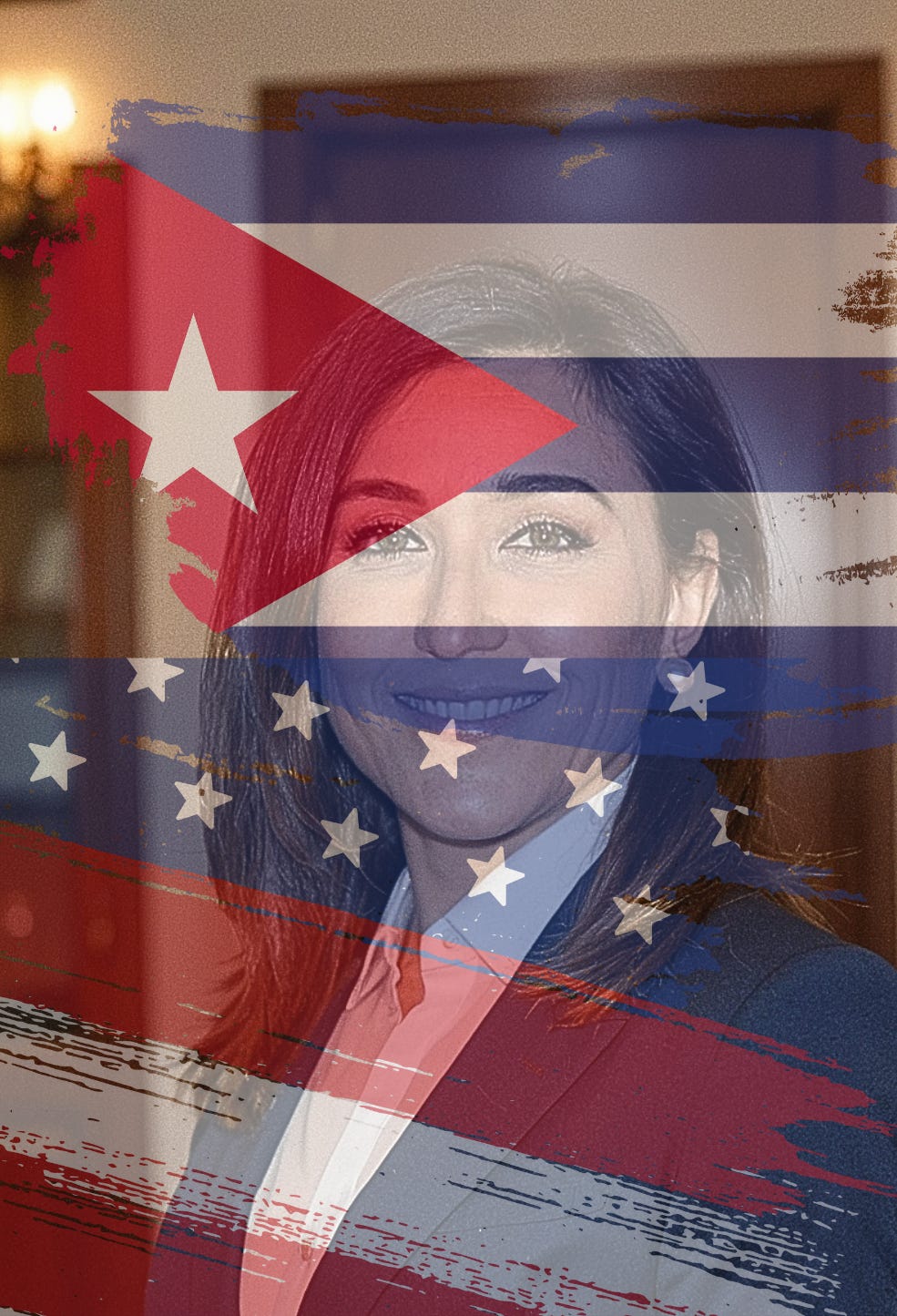I’ve always loved the art of both. Maybe that’s why I studied journalism—to learn how to hold space for contradictions, to ask questions that don’t have simple answers. Or maybe it’s because I am the embodiment of duality: 100 percent Hispanic and 100 percent American.
On paper, that sounds impossible. But to me, it’s simply reality.
I wasn’t born in Cuba, yet I’m called Hispanic. And to some born in their countries of origin, I’m “too American.” I live in this liminal space where I’m never entirely from here or entirely from there. I know both sides intimately—and I’ve learned to choose what works for me, when it works for me. It feels like a superpower.
Because here’s what I know to be true: in my life, both sides are true. And it’s a beautiful thing.
The Science of Holding Two Truths
Psychologists call this capacity integrative complexity—the ability to recognize multiple, even contradictory perspectives, and integrate them into a coherent whole. Research shows that people high in integrative complexity are more creative, better problem-solvers, and more adaptive leaders.
This isn’t just academic jargon—it’s a survival skill for people like me.
Growing up Latina (Hispanic) in America, you quickly learn that binary thinking or oversimplification for the sake of others doesn’t fit your life. The world wants you to pick a side. Are you Hispanic or American? Are you ambitious or grateful? Dreamer or practical?
But neuroscience tells us that the brain thrives on nuance. When we grapple with conflicting ideas, we activate the brain’s anterior cingulate cortex, which plays a key role in cognitive flexibility and emotional regulation. Holding two truths at once literally rewires your brain to be more resilient and open-minded.
So while the world pushes us toward either/or, our biology is built for both/and.
The Cost of Choosing Sides
For Latinos born in the U.S.—people like me—this duality can feel especially fraught. We’re sometimes told we’re “not Cuban enough,” “not Mexican enough,” or “too American.” It’s as if our identity is perpetually on trial.
Why is that so threatening? Because if someone convinces us we’re not Cuban, Mexican, or Colombian, they can strip away the very thing tying us to our families, our heritage, and our sense of belonging.
And yet, to fully accept that label of being “too American” can feel like divorcing ourselves from our roots. It’s also divorcing myself from my other half, whichever way you slice it.
I refuse.
I write to understand this tension. In a world and a culture obsessed with binaries, I write to reclaim what’s mine—and to create a version of identity I feel comfortable with, regardless of the inherent duality or the lack of ethnic “purity” on either side.
Because here’s the truth: cultures evolve. People evolve. And the stories we tell about who belongs must evolve, too.
From Survival to Superpower
What once felt like a burden—never being entirely from here or there—has become my superpower.
As a journalist, my dual perspective gave me a bridge into communities others might never see. I could switch codes, languages, and cultural references seamlessly. I could ask questions others were afraid to ask because I understood why those questions mattered to both sides.
This isn’t just a cultural skill; it’s a cognitive advantage. Bilingual and bicultural individuals have been shown in research to exhibit greater cognitive flexibility and even delay the onset of dementia.
In a business world increasingly driven by global connections, this isn’t just valuable—it’s essential.
The Courage to Be Both
Living as “both” isn’t always comfortable. There are moments of alienation, moments of exhaustion, moments of longing to just fit cleanly into one category.
But I’d rather navigate that discomfort than shrink myself into a box someone else built.
Because life is richer when you allow contradictory truths to coexist:
You can be incredibly ambitious and deeply grateful.
You can love the country where you live and fiercely honor the roots of where your family comes from.
You can feel admiration and gratitude for your upbringing and still examine if all you were taught is still working for you.
And you can be 100 percent Hispanic and 100 percent American.
Reclaiming “Both”
I believe that those of us who straddle cultures, languages, and identities have a responsibility to tell our stories. Not just for ourselves, but because they challenge the binary thinking that limits everyone.
People are complex and oversimplifying or fitting in a box is impossible especially when you consider all the other variables that also make us who we are - socioeconomic, religion, immigration, status, etc., etc.
We’re living proof that contradictory ideas can both be true at the same time. That belonging isn’t about purity—it’s about connection. That identity is not a fixed box to check but an ever-evolving story we get to write.
So, next time someone tries to force you into a single box, remember this:
I identify as ME.
With its duality, its complexity and its dimension.
And it is a beautiful thing.
Sources & Notes:
Tetlock, P. E. (1986). A value pluralism model of ideological reasoning. Journal of Personality and Social Psychology, 50(4), 819–827.
Bialystok, E. (2001). Bilingualism in Development: Language, Literacy, and Cognition. Cambridge University Press.
Botvinick, M. M., et al. (2001). Conflict monitoring and cognitive control. Psychological Review, 108(3), 624–652.
About the Author
Teri Arvesu Gonzalez is the founder of The TAG Collab, a consultancy that helps mission-driven companies align purpose, brand, and strategy from the inside out.
With a Master’s in Management and Leadership and more than 25 years of experience leading newsrooms, launching initiatives, and driving transformation across Miami, Chicago, and national corporate teams, she brings deep expertise in storytelling, culture-building, and operational alignment.
Also find me on:
Podcast: on Apple Podcasts and Spotify The TAG Collab
Instagram: https://www.instagram.com/the_tag_collab/
Facebook: https://www.facebook.com/profile.php?id=61576206521962
Linkedin: https://www.linkedin.com/in/teriarvesu/





Great thoughts Teri ! We absolutely need to share our stories with the world 🌎 🌍 to enlighten them and open their eyes !!